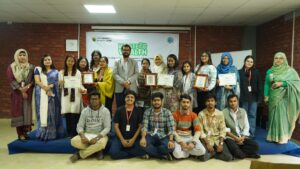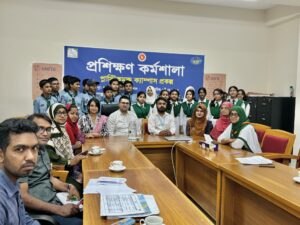The plastic pollution catastrophe is caused by a variety of factors, but the broadness of our ocean’s poisoning is terrifying. Microplastics have now been found in all maritime ecosystems and are consumed by marine organisms at all levels of the food chain. They’ve been found in the food we consume, the water we drink, and the air we breathe. Plastic manufacturing is increasing at an exponential rate, and recycling is not a viable option since no recycling system on the planet could handle the massive amount of plastic being used daily.
The United Nations Environment Assembly (UNEA) is the world’s highest-level environmental decision-making body. Every two years, it meets in Nairobi to determine global environmental policy goals and build international environmental legislation. UNEA has been investigating methods to prevent marine plastic pollution through a special group (known as an Ad Hoc Open-Ended Expert Group) tasked with identifying barriers to and solutions for reducing marine plastic litter and microplastics from all sources, particularly land-based sources.
The Environment and Social Development Organization-ESDO hosted a virtual high-level policy dialogue to address the urgent need for the Global Plastic Treaty approach in UNEA 5.2.
Honorable Minister of Ministry of Environment, Forest and Climate Change Md. Shahab Uddin was the chief guest of this event, and the session was chaired by Syed Marghub Murshed, former Secretary of the People’s Republic of Bangladesh and ESDO’s Chairperson.
The special guest of the event was the Ambassador of Japan to Bangladesh, H.E. Mr. ITO Naoki, and the Guest of Honor of the event was Md. Moniruzzaman, Additional Secretary, Ministry of Environment, Forest and Climate Change. Among the Panelists, Tim Grabiel, Attorney and Environmental Lawyer, Environmental Investigation Agency – EIA UK; David Azoulay, Geneva Managing Attorney, Director of Environmental Health Program, Center for International Environmental Law (CIEL), Geneva, Switzerland; Prof. Steve Fletcher, Professor of Ocean Policy and Economy, Director of Revolution Plastics, University of Portsmouth, UK; Vito A. Buonsante, Policy & Technical Advisor, IPEN (International Pollutants Elimination Network), USA; Md. Ziaul Haque, Director, of the Department of Environment shared valuable insight on the Global Plastic Treaty and its probable approach from the perspective of the Bangladesh Government.



